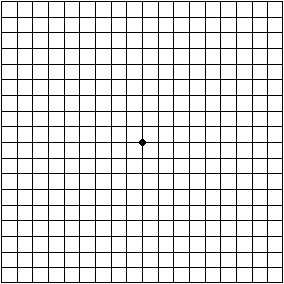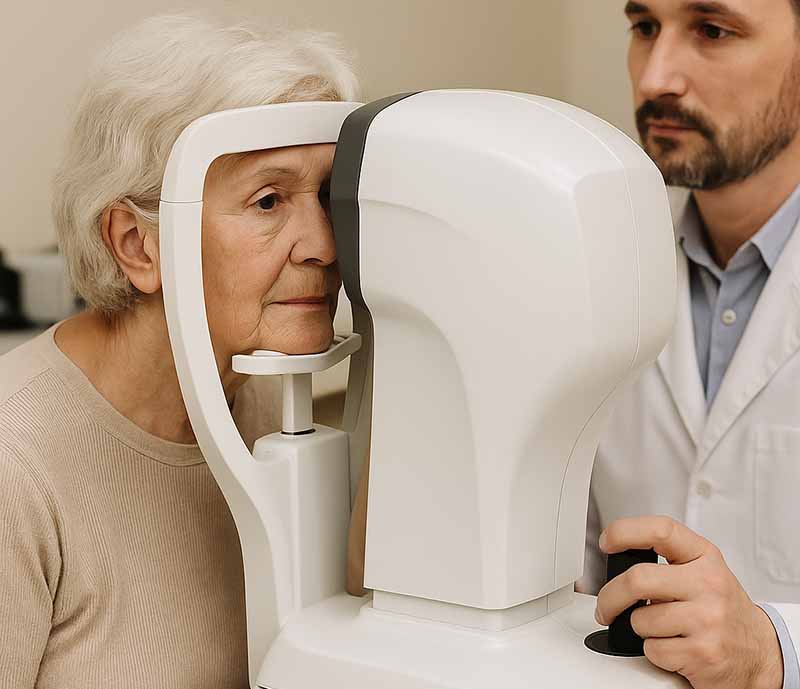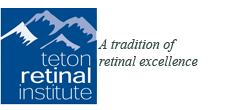Macular degeneration is a common eye condition—and a leading cause of vision loss—among people age 50 and older. It affects the macula, the central part of the retina responsible for sharp, detailed vision. At Teton Retinal Institute, we specialize in the early detection, diagnosis, and advanced treatment of macular degeneration, helping patients preserve their sight and quality of life.
What is Macular Degeneration?
Macular degeneration, also known as age-related macular degeneration (AMD), is a progressive eye disease that damages the macula—the small but vital part of the retina responsible for central vision. While it does not lead to total blindness, AMD can severely impact your ability to read, drive, recognize faces, and perform tasks that require sharp vision.
This condition typically develops slowly over time and may go unnoticed in its early stages, making regular retinal exams especially important as you age.
Types of Macular Degeneration
There are two main types of macular degeneration, each affecting the eye differently and requiring its own approach to treatment.
Dry Macular Degeneration
Dry AMD is the most common form, accounting for about 80–90% of cases. It develops gradually as the macula thins over time due to aging and the accumulation of tiny yellow deposits called drusen. Central deep macular layers (the center of the retina) slowly waste away. Vision loss is typically slow, but it can progress to more advanced stages if left unmanaged.
Key Facts:
- Often begins in one eye, then may affect both
- No leakage of blood or fluid
- Regular monitoring is essential
Wet Macular Degeneration
Wet AMD is less common but more serious. It occurs when abnormal blood vessels grow under the retina and leak fluid or blood, damaging the macula. This can lead to sudden and significant vision loss if not treated promptly.
Key Facts:
- Rapid onset and progression
- Requires immediate medical attention
- Often treated with injectable medications
Common Symptoms to Watch For
The signs of macular degeneration can be subtle at first, especially with dry AMD. Early symptoms are very mild and barely noticed. Because of this, early eye exams are crucial.If you notice any of the following symptoms, it’s important to schedule a comprehensive eye exam:
- Blurry or fuzzy central vision
- Straight lines appearing wavy or distorted
- Difficulty recognizing faces
- Dark or empty spots in the center of your vision
- Reduced color perception
- Amsler grid changes
- An amsler grid is a diagnostic tool used to monitor a person's central visual field, particularly to detect changes in the retina, especially the macula. It's a grid of straight lines with a central dot, used for self-monitoring by individuals to detect subtle vision changes that might indicate problems.

- You can also view the amsler grid here
- How to Use the Amsler Grid:
Because symptoms often go unnoticed in the early stages, regular eye exams are crucial for early detection and intervention.
How We Diagnose Macular Degeneration

At Teton Retinal Institute, we use advanced diagnostic tools to detect AMD with accuracy and precision. A typical diagnostic evaluation includes:
- Dilated Eye Exam – To check for signs of drusen and changes in the retina.
- Optical Coherence Tomography (OCT) – A painless imaging technique that provides high-resolution cross-sectional images of the retina.
- Fluorescein Angiography – A special dye test that highlights abnormal blood vessels and leakage in the eye.
- Amsler Grid Test – A simple at-home test to detect changes or distortion in central vision.
These tools allow us to tailor a treatment plan based on the exact type and stage of macular degeneration.
Treatment Options at Teton Retinal Institute
While there is no cure for macular degeneration, especially dry AMD, early detection and proper treatment can slow its progression and preserve vision.
For Dry AMD:
- Nutritional Therapy (AREDS2 Formula): Vitamins and minerals that may slow progression.
- Lifestyle Changes: Smoking cessation, healthy diet, and UV protection.
- Monitoring & Regular Follow-Ups: Early signs of progression can be managed quickly.
For Wet AMD:
- Anti-VEGF Injections: These medications reduce abnormal blood vessel growth and leakage.
- Laser Therapy (in select cases): Seals leaking blood vessels.
- Photodynamic Therapy (PDT): A combination of light and medication for certain wet AMD cases.
We customize treatment plans to each patient’s condition, needs, and vision goals.
Frequently Asked Questions
-
Can macular degeneration be prevented?
While you can’t always prevent AMD, healthy lifestyle choices—like not smoking, maintaining a balanced diet, and wearing sunglasses—can reduce your risk.
-
Does AMD cause blindness?
AMD does not cause complete blindness, but it can significantly impair central vision. Early diagnosis and treatment can help preserve visual function.
-
Are the treatments for Dry Macular Degeneration or Wet Macular Degeneration painful?
Most treatments, including injections, are performed with local anesthetic and are well-tolerated by patients.
-
Is Macular Degeneration hereditary?
Genetics can play a role, so a family history of AMD may increase your risk. Regular eye exams are important if AMD runs in your family.
Why Choose Teton Retinal Institute?

At Teton Retinal Institute, our mission is to deliver personalized, compassionate retinal care backed by the latest medical advancements. Led by Dr. Darryl G. Moffett—a board-certified, fellowship-trained retinal specialist with over 30 years of experience—we’ve helped thousands of patients throughout Idaho and surrounding states preserve their sight.
What sets us apart:
Advanced diagnostic technology (OCT, angiography, retinal imaging) Cutting-edge treatments for both dry and wet AMD A caring, knowledgeable staff that values your comfort Convenient access from Idaho, western Wyoming, and southwestern MontanaYour vision matters. Trust your eyes to the experts who are dedicated to protecting and preserving it.
If you're experiencing changes in your eyesight or have a family history of macular degeneration, don't wait. Call Teton Retinal Institute today at (208) 535-4900 to schedule a comprehensive eye exam. Early detection can make all the difference.
Schedule an Appointment